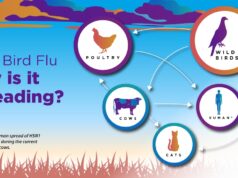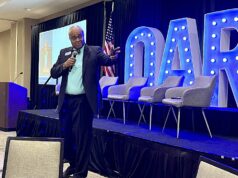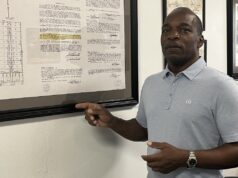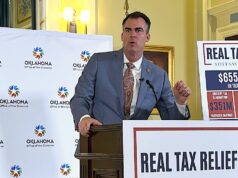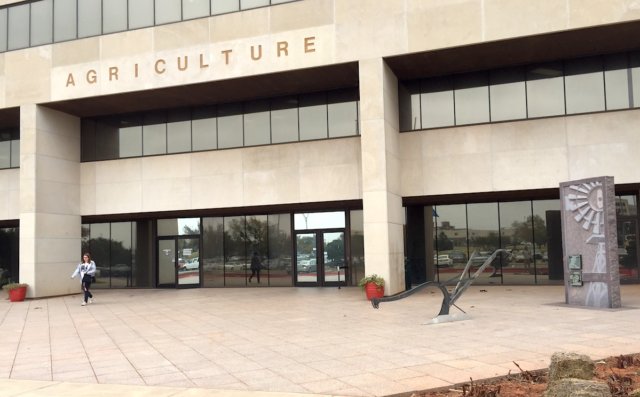

Owing to a “billing dispute” with the federal government, the Oklahoma Department of Agriculture refused to pay about $1 million worth of Wildlife Services invoices during three fiscal years. The U.S. Department of the Treasury took corrective action in September.
“There was no misappropriation of funds whatsoever,” Secretary of Agriculture Jim Reese said Monday. “It was a billing dispute, partially caused by a new billing system, partially caused because — in our budget reductions — we reduced our purchase order but didn’t reduce our contract, even though we requested it to be reduced. So we were refusing to pay bills that were over the amount of our purchase order, and in one case over the amount of our contract.”
Among other disagreements, three delayed payments totaled $835,841.47, which the U.S. Treasury withdrew from the state agency following notification letters dated Sept. 7 and Sept. 13.
“They’ve got all the money, but it hasn’t all filtered through the state processing system,” Reese said. “We are going to work out a better contract.”
Although NonDoc has also learned that Oklahoma lawmakers recently forwarded information about the issue to Oklahoma Attorney General Mike Hunter for potential investigation, a criminal investigation does not exist.
“The attorney general’s office has advised and assisted Secretary Reese toward resolution of this matter,” said Alex Gerszewski, press secretary to Hunter. “The attorney general’s office wouldn’t have advised Secretary Reese if there were criminal implications.”
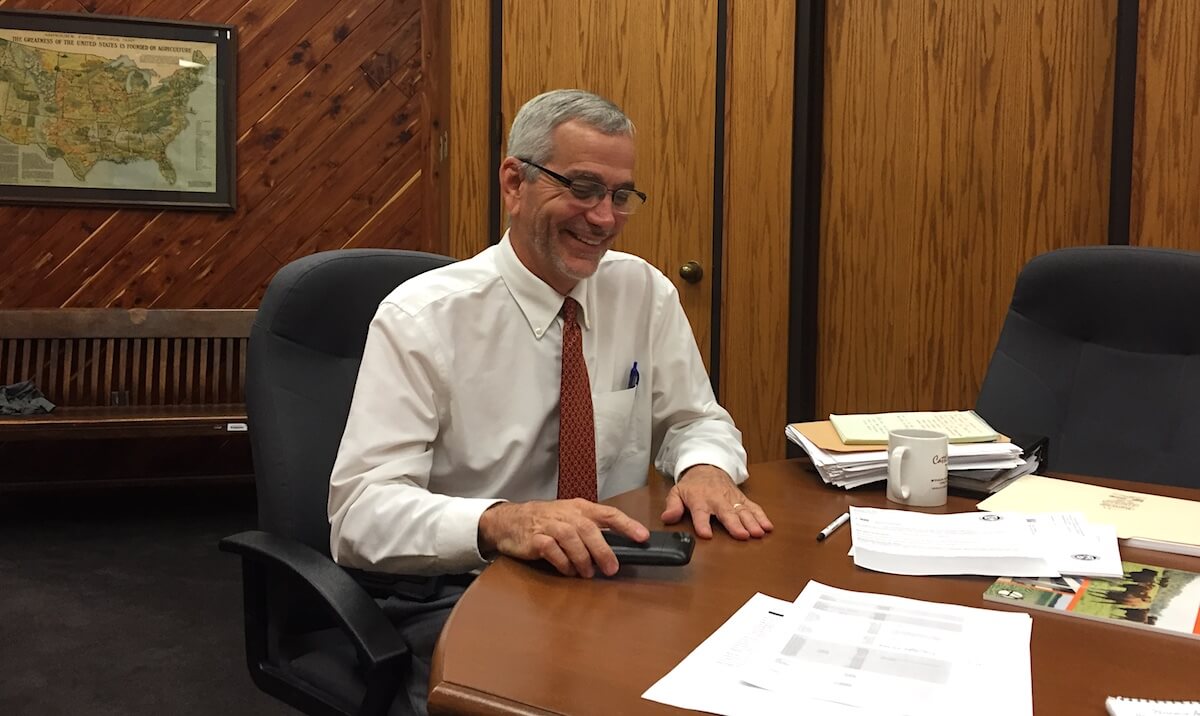
‘Nobody seemed to know is the frustrating part’
Despite the absence of criminal implications, the billing dispute between the Oklahoma Department of Agriculture Food and Forestry and the federal Wildlife Services agency highlights the complex relationship between state and federal bureaucracies. It also fuels further concerns from Oklahoma House Republicans who have argued that state agencies are bungling their fiduciary responsibilities at an alarming rate.
“How it was able to go for four years without raising any red flags is a major concern to me,” said Rep. John Pfeiffer (R-Orlando), chairman of the House Natural Resources and Regulatory Services Committee. “This on top of what’s happening at the Health Department and everything else makes you seriously question how some of these agencies are being managed.”
Pfeiffer clarified that the Department of Agriculture’s billing dispute has posed far less of a problem than the Oklahoma Department of Health’s issues, which have resulted in furloughs, announced layoffs and an emergency request for $30 million in supplemental funding.
“Secretary Reese is in a far different category than Director (Terry) Cline, but it shows the need for better oversight from this building and better working relationships with the agencies and the need for members to better understand the inner budgets of the agencies they oversee,” Pfeiffer said. “The Legislature needs to be better informed of the internal budgets of these agencies.”
In addition to being overseen by Pfeiffer’s committee, Reese is actually a constituent of the second-term Republican, who said he has no reason to mistrust Reese, a former legislator who once held the same House seat.
“Just the fact that it went on so long and nobody seemed to know is the frustrating part,” Pfeiffer said. “I go over the inner-office budgets, but we’re working with the numbers they give us, and if they don’t tell us, ‘Hey, this is a problem,’ it kind of cuts the legs out from under us in terms of legislative oversight.”
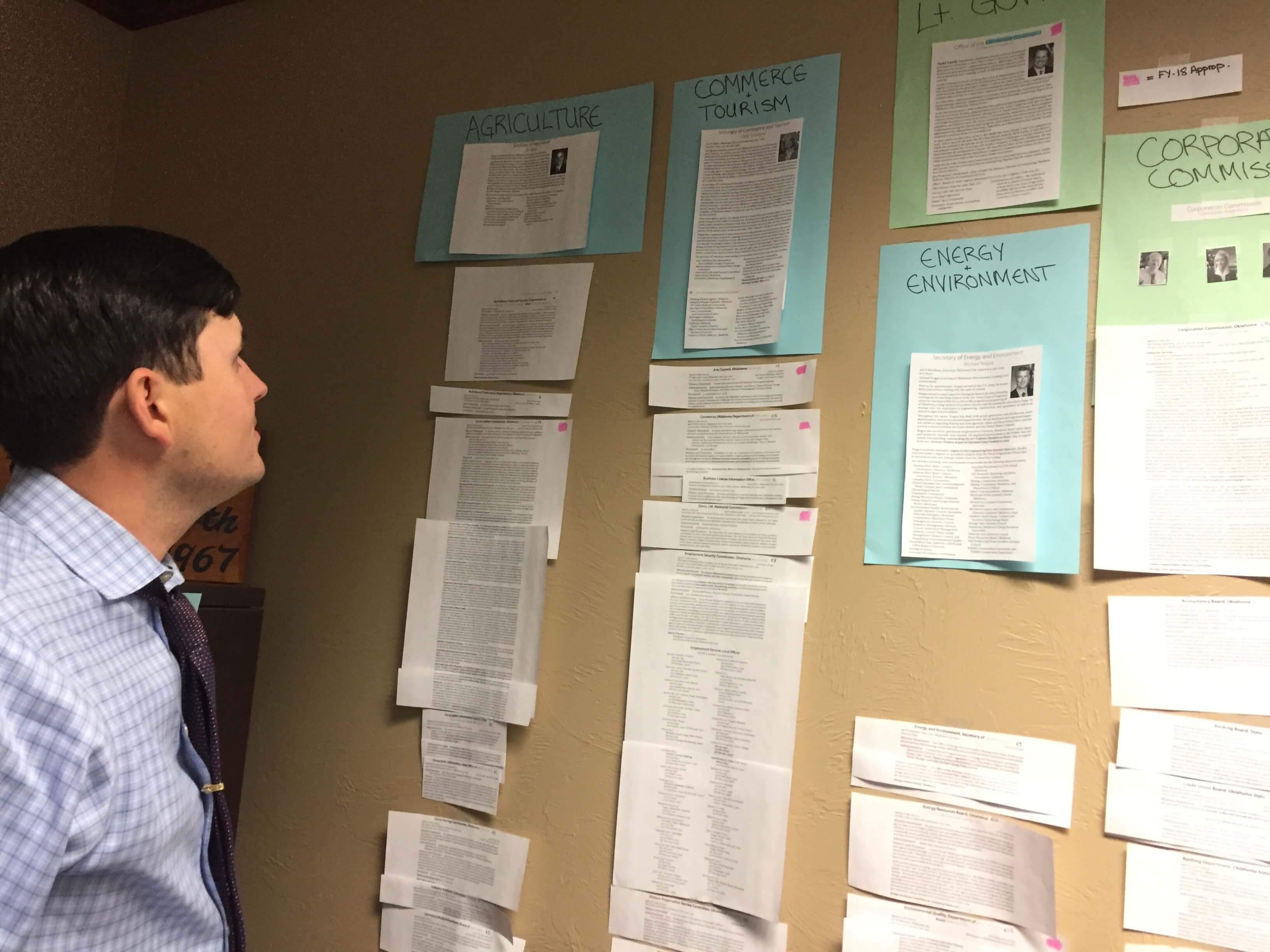
Beavers, muskrats and hogs, oh my!
Exactly what Wildlife Services does or how it operates is likely beyond public purview. Oklahoma’s federal-state interagency partnership dates back to 1915, according to Kevin Grant, Oklahoma Wildlife Services state director.
“We’re operating normally,” Grant said Tuesday. “My purpose is to try to wisely expend what I’m given for our mission. What we do is we provide the service.”
That service includes abating nuisance animals, including coyotes, beavers, skunks, muskrats, large rats and feral hogs, which Reese said occupy about 80 percent of Wildlife Services’ time.
“When I took over, we were eliminating roughly 3,000 feral hogs a year. Now we expect 15,000 this year,” Reese said. “They’re the fastest reproducing animal in North America.”
Reese said the economic impact of feral hogs on crops and agriculture commodities is upwards of $1.25 billion per year nationally. He and Grant said nuisance animal-elimination efforts have been unaffected by the billing dispute.
“At various times of the year, it could be to any circumstance whatsoever. Any type of budgetary crisis, when funds are available we go forth. And when funds are restricted by any means, we still go forth but at a proportionally smaller rate,” Grant said. “We’re rocking right along.”
‘I would like to avoid a repeat’
Grant said he could not speak to higher-level funding questions and the contract and invoicing disputes, but hundreds of pages of emails turned over to NonDoc by the Oklahoma Department of Agriculture do.
In short, the emails paint a picture of thick government bureaucracy and communication problems between federal and state entities. The exchanges are largely between Oklahoma Department of Agriculture comptroller Nancy Tackett and USDA debt management specialist Adam Fish. At times, the communications got testy.
Tackett wrote a situational update to Reese and two other state employees on Feb. 17 that ended with the following assessment:
Adam Fish needs to read his own agreements and apologize for his condescending attitude (I wanted to add a little humor)
Mr. Fish was not included in this email. I will be happy to clean it up a little bit and forward to him if you like. I promise to take out the last remark.
Hours earlier, Fish had written to Reese and Tackett, with Grant and two state employees copied.
Mr. Reese,
I understand your frustrations, but concerns with future agreements based on our current discussions about the State of Oklahoma’s non-payment towards old agreements will not affect my stance.
First you were unable to pay towards remaining debt because of confusion on the fiscal year. After I addressed those concerns the response basically explained that the State of Oklahoma did not budget accordingly to the agreement timeframe and securing funds is now a problem. Additionally, the State indicated it will use funds from one fiscal year to pay for charges from a different fiscal year (see Nancy’s email below, highlighted section).
If aligning your FY budget to our FY charges is the root cause of current problems proceeding as such will obviously not help anything in the future. When I first contacted the State of OK in August 2016 there was $1.3 million in past due debt dating back to FY 2013 charges on an account with NET30 terms. Fiscal year misunderstandings most likely played a significant role in how so much became grossly delinquent. I would like to avoid a repeat situation.
As you personally signed many of the sales order agreements it would have been up to you to ensure all aspects, and how they interact with the State of Oklahoma’s processes, were understood and manageable.
Many of the other issue’s brought up were answered by referring to sales order agreements or from details found directly on our invoices.
I agree these emails are getting long. Are you interested in a conference call for further discussion? I would be happy to set something up for later today or next week on your availability.
Tackett emailed Reese and the two other state employees less than 30 minutes later, saying, “As far as I am concerned, there is no fiscal year confusion on our part. The agreements you signed clearly define the time period of the contract which is the state fiscal year.”
Months later in August, a federal employee named Lora Swanson emailed two state employees with Fish copied:
Hello Accounts Payable,
Our records indicate that we are receiving your check payments in our office in Mpls, MN. This is causing a delay in your payments posting to our financial system. Mpls is not authorized to process checks. We simply log them and send them to the appropriate lockbox for processing.
(…)
On Nov. 3, Reese received an email from USDA employee Scott Alls noting that “everything that was referred to Treasury has been settled.”
Reese noted that Wildlife Services agreed to adjust its contract with Oklahoma so as to absorb the U.S. Treasury’s late fees.
“I think they recognized that it wasn’t all our fault. It really isn’t a settlement agreement, but they agreed to reduce their contract to cover the penalty and interest,” Reese said. “I absolutely think that we were refusing to pay bills that we did not believe that we owed. Every time they said we owed, we said we didn’t.”
Pfeiffer said the issue was important to resolve because the work done by the federal-state cooperative agency benefits Oklahomans.
“Wildlife Services is an extremely important department. The moving away of birds from airports is extremely important to airport safety,” Pfeiffer said. “When I was in the Marine Corps and I worked on the air base, they used to have to down flights because geese were too close to the runway and it endangers planes. It’s a public safety issue, and it’s a huge issue to rural Oklahoma, especially as we continue to fight invasive species like feral hogs and things like that.”
Reese said he received confirmation this week that the federal government decided in November that outstanding Wildlife Services debts nationwide would be referred to the U.S. Treasury, starting April 17.
Reese said he hopes everyone can focus on the work done by the agencies and move forward.
“Accountants want to know where all the beans go,” Reese said. “I’m interested in agreeing to an amount, getting the services they are going to provide and getting it done.”









